Moving to Italy from the UK
Renowned for its proficiency in literature, art, music and theatre, Italy is a unique country. The beautiful architectural and historical treasures as well as the vibrant population of 62.2 million people help make it an exciting and dynamic place to live. If you’ve decided to relocate to this European haven, we’ve put together a detailed guide to help plan your move to Italy and give you an idea of what it’s like to live here.
Orientation
The 20 different regions each offer their own culture, identity, and climate. Despite Rome being the capital, there are plenty of other Italian cities to choose from. Whether it’s Florence’s red roofs in central Italy or the major port of Naples in the south that takes your fancy, there are slight variations to the Italian experience wherever you go.
Communicating with natives in English will be less possible outside of large cities, so learning the beautiful Italian language will aid your assimilation tremendously. If you are interested in exploring the history of ancient churches, cathedrals and palaces, Italy is the perfect place for you.
Entry requirements for UK citizens moving to Italy
If relocating for work, ensure that you are making the most of any assistance offered by your employer with visa applications and more. As the UK has left the European Union, moving to Italy from the UK will now require the appropriate visas and permits for your stay, as well as a valid passport throughout your stay.
For more advice and assistance on the visa process, read how we can help with our International Relocation Services.
Passports – Required for any international travel from the UK, valid passports must be presented for every person travelling to Italy for any length of time. Ideally, the passport should be valid for your entire stay, however, it is possible to apply for or renew your British passport from Italy.
Visas and permits – Visas are now required for any length of stay on Italian soil. A work permit may also be required if you are travelling to Italy for work purposes, but your employer should be able to assist you if this is the case.
First of all, filling out this form from the Italian authorities will ascertain if you need to apply for a visa for your stay in Italy. Note also that visa applications may cost around £100. You can apply for a Long Stay Visa if you are travelling to Italy for a certain period (between 91 to 365 days) for work, education, retirement, or other family-related purposes. However, note that this Visa option is not for permanent residence here.
For longer stays or a permanent move, you will need to apply for a residence permit within 8 days of your stay in Italy. This process is separated into two parts: First, picking up an application kit for Italian residency at the local post office, and second, visiting the police headquarters with original copies of the required documents, along with the letter and receipt confirming your appointment date (provided by the post office once you complete your application kit). If you’re on a work visa, our employer will need to provide you with a work permit to present to the authorities.

Is Italy Safe?
Safety is a valid concern when visiting or moving to a new country. When it comes to Italy, however, any fears eased given that the country’s crime levels are even lower than that of the US and the UK. The only precaution you do need to take is in case of potential natural disasters.
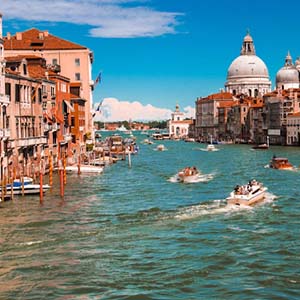
Transporting household goods to Italy
If you are moving to Italy for a fixed amount of time on a long-term work assignment, you will be allowed to transport your own used household goods and appliances during your first 6 months in the country. You should provide your passport and your certificate of Italian residence at customs to ensure duty-free entry for your shipment.
People moving to Italy from the UK will need to provide the fiscal code number and permit to stay, as well as an indication of their residency and payment of any applicable taxes on their items. Electrical items should be listed along with their serial numbers, dates of purchase, and trademarks. Selling your household items in Italy will require you to pay duty unless the recipient enjoys duty-free status too.
Restricted and prohibited items
- A permit from an Italian Consulate, endorsed by the Italian frontier police, is required to transport hunting weapons.
- Shipped electrical equipment such as radios, cameras, audio equipment, and computers may incur a deposit and require a certificate from the Ministry of Economic Development.
- A phytosanitary certificate declaring that items are free of disease will be required for shipping any plant or vegetable products.
- Narcotics, weapons other than for sport, explosives, protected species of animals and plants, and parts and derivatives of such goods are all prohibited from travel through Italian customs.
- Importing currency of more than €10,000 will require a Custom’s form to be submitted.
For more current and detailed Customs requirements, contact the Italian embassy in London, or visit the Italian Agenzia Delle Dogane (Customs Agency) website.
Moving to Italy with your pet
There are many personal considerations to undertake before you decide to relocate to Italy with your pet. While pets are generally welcome and the Italian climate generally poses no danger to their health, you must have enough space and time to give your pet a good life. Italians expect pets to be well–behaved in public, and if your dog’s lead is longer than 1 metre you should have a muzzle for your dog.
Requirements for your dog or cat will vary depending on the origin of your pet. Generally, you will need to be able to present a health certificate, rabies certificate, and proof of route immunisations. Unvaccinated puppies or kittens under 3 months old are prohibited from entry to Italy.
Italy does not ban any dog breeds, however, Rottweilers and Doberman Pinschers are not allowed in the city of Venice. Other pets, such as parrots, parakeets, and rabbits, will also require health certificates and are subject to inspection by the authorities. You should contact your closest embassy for information on your specific requirements.
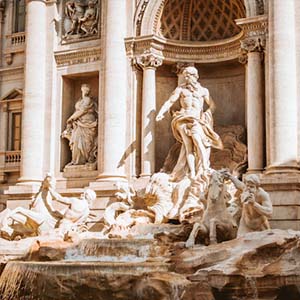
Can I take my car when moving to Italy?
You may want to move to Italy and take your car with you from the UK. You should take into consideration any restrictions on the size of your household shipment, as your car will be included in this.
If your vehicle is older than 1 year, it is possible to import it without paying duty. To avoid tax, your vehicle must also enter the country within 6 months of your own arrival. New cars will be subject to duties and registration fees, whereas used cars will have a higher import tax, of up to 40%. You will be expected to present your vehicle’s registration, title, and bill of sale.
You may drive a foreign motor vehicle in Italy for up to 6 months before registering it locally. Your car might need some modifications before meeting Italian specifications, including turn signals at the front, side and rear, white front parking lights, an approved catalytic converter and no retractable headlights. Check your local consulate for more vehicle specifications.
Vehicles are also readily available to purchase or to rent locally in Italy. Also be aware that petrol stations might be very small compared to those in the UK, and petrol prices in Italy are some of the highest in Europe. ‘Gasolio’ refers to diesel fuel, and ‘benzina senza piombo’ to unleaded, both of which will be available.
Currency and Exchange
Like the rest of the EU, the Euro (€) is the official currency of Italy. Exchanging currency is possible at banks, exchange offices, major post offices, airports, seaports, and even some national train stations. Best rates are often found at banks or tourist exchanges in large cities. It’s recommended to keep hold of your receipts in case you need to revert to the original currency.
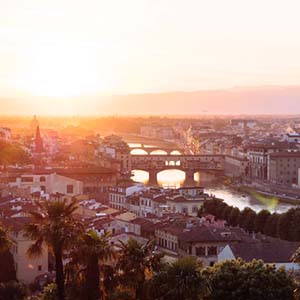
Opening a bank account in Italy
Most banking services are available in Italy, including current accounts, ATMs, credit cards, and direct bill payments. You should expect much higher rates than in the UK, especially for foreigners, and interest rates are generally quite low. Internet banking exists in Italy, but it may not be as established as in the UK and other European countries.
Opening a regular euro bank account in Italy typically requires proof of residency in the country, your passport, and a fiscal code. With an account, you will receive a Bancomat card, for ATM withdrawals, and a credit card if you wish. You can open a bank account without residency, but the process is relatively challenging, involves restrictions, and accounts with high transaction fees. Opening a bank account is recommended, as this allows automatic payment of bills, rent, and other local accounts.
Medical Insurance and Healthcare
Before you travel abroad, you should check what your medical insurance covers outside of your home country. If you have special requirements, consider purchasing extra cover before you make the trip. Once you move to Italy, you can then decide whether to change to Italian health insurance or to remain with your home provider. Ensure you have proof of coverage with you if you decide to stick with your UK provider.
There are typically two options for medical insurance in Italy: Public and Private.
Public health insurance – The National Health Service in Italy is the Servizio Sanitario Nazionale (SSN). It is administered in many locations and foreigners with valid residency permits are eligible for healthcare under the SSN. Health tax must be paid if you work in Italy.
It is possible that public hospitals may be understaffed, underequipped, and may not speak English, so take this into account before choosing your insurance in Italy.
Private health insurance – Private medical facilities in Italy are excellent, with excellent services and English-speaking staff often available. They will often require immediate payment for their services. Your company may have an in-house medical plan, so check with your employer before making any arrangements. A large percentage of expatriates living in Italy opt for private medical insurance.
How to secure accommodation in Italy
As in any case, we recommend starting your hunt for accommodation as early as you can. Paperwork could be a lengthy process, and it may take time to find housing that meets your specific requirements in your desired location. Estate agents can ease the process, however, it’s best to go with a trusted estate agent recommended by a friend or employer. Available housing is also displayed in newspapers and online.
If you’re moving to Italy with your family, you might need to find adequate schooling for your children. Find out how we can assist your school search.
Renting vs. Buying
While properties are available to buy, most people moving to Italy from the UK choose to rent a property. Even if you plan to buy, it’s a good idea to rent initially to check out the neighbourhood you plan to live in.
Many tenants prefer renting to foreigners rather than Italians, due to the law making it virtually impossible to evict Italian tenants. Before signing any documents, check what is included in the payments as some apartments are not connected to electricity or gas. Leases are typically 4 years, and landlords should be given 6 months’ notice before early termination, however this can change in some big cities. Rental property is typically privately owned and rented out, rather than banks of rental apartments.
Buying a property can be a lengthy bureaucratic process, so you should obtain professional assistance before beginning. To determine any encumbrances on the property, a notary public (nataio) will be needed, as well as a lawyer (avvocato), an accountant (commercialista), and a surveyor (geometra). Mortgages are not common in Italy and interest rates tend to be extremely high.
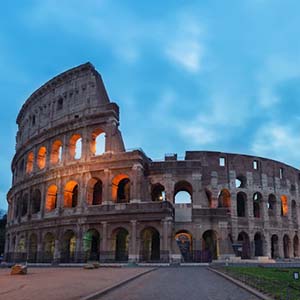
Types of property in Italy
Italians value family extremely highly, meaning that family members normally choose to live in the same building or street. This means that finding single-family accommodation could prove to be difficult.
In major cities, such as Rome and Milan, it is typical to live in apartments, as houses and villas are scarce and expensive. Though recent availability and prices of apartments have improved, rent is typically expensive. Parking facilities are not common, so if you are planning to own a vehicle you should check for parking availability nearby.
More affordable accommodation can be found in suburban areas outside of city centres, where villas may be more available. In these neighbourhoods, public transport connections will typically be less established, so owning a vehicle is recommended.
Unfurnished accommodation in Italy will have nothing – it is not uncommon that they come without kitchen cupboards, light fixtures, or appliances. On the other hand, furnished accommodation will include furniture, lamps, and appliances but normally exclude linen.
Short-term housing
The availability of short-term housing in Italy will vary depending on the specific location. The Italian tourist office in the UK should be able to assist in finding short–term housing, as will relocation companies. Popular expat destinations, like Milan and Rome, have numerous options for temporary residency with a range of services.
Getting around in Italy
You will need an International Driver’s Permit valid for 12 months when moving to Italy. Expats from the UK must obtain an Italian Driver’s licence within a year of being a registered resident, and the process can be a long one. As Great Britain has a reciprocal agreement with Italy, you should be able to convert your UK licence to an Italian licence without having to take an Italian licence test.
Italians drive on the right, so people moving from the UK should take time to get accustomed to this before undertaking any long trips. Driving around Italy should be reserved for long journeys, as the traffic and narrow streets of large cities can make driving a difficult task. Much of the Autostrada, motorways, are toll roads, so be prepared with cash, credit card, or Telepass. Most road signs will be in Italian. Italians tend to drive fast and pass quickly. Pay attention to the driving laws in Italy, including:
- Seat belts are compulsory
- Motorcyclists must wear helmets
- People under 18 must wear helmets on motor scooters
- Using hand-held mobile phones while driving is illegal
Vehicle Insurance
Italian law requires you to obtain third–party insurance, though many expats choose to purchase more than the minimum required coverage. Proof of insurance must be visible on the car’s windshield. Insurance in Italy is typically expensive, claims can take a while to process, and it’s the vehicle that’s insured rather than the driver.
Public Transport in Italy
Public transport can provide a faster and less stressful alternative to a private vehicle or taxi, especially in cities. Parking can also be difficult to find in large cities. Transport networks in Rome and Milan are excellent, and there is increasingly good access for people with limited mobility.
Italian buses are affordable and clean, though they can become busy during rush hours. Tickets must be purchased before boarding the bus and validated on board, and the average monthly pass for local transport equates to around £30. Spot checks are common and heavy fines are punishment for having no valid ticket. The ticket system is the same for the metro systems in cities like Milan and Rome. Trains across the country are supplied by Trenitalia for regional and national transportation. High-speed trains are available between large cities and long-distance trains typically require a seat reservation.
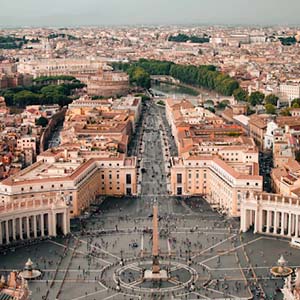
Social Life in Italy
Some expats may make friends with other expats through business connections, clubs, or schools. Alternatively, making friends with Italians will provide a more native experience of Italian life. This is made easier in cities with cultural, social, and other hubs. Italians are typically hospitable, friendly people and like to socialise with foreigners. You might be invited to family events by your Italian friends, which is a perfectly normal social gathering.
There are countless entertainment opportunities, especially in urban areas. Museums, galleries, sports facilities, and festivals are available year-round to cater to the whole family. Nightlife is vibrant and fun in most Italian cities, and evening festivities will often last longer than is typical in the UK.
Dining Out
Lunch is the main meal of the day for Italians, and business lunches are not uncommon. Business dinners are also possible and note that wives are rarely invited to initial business meals, whether at lunch or dinner. Restaurants often have uncommon opening days and hours, so you should check ahead before making any arrangements, and ensure that the establishment will accept credit cards. It’s also important to note that smoking is popular in Italy, while it’s no longer legal to smoke inside restaurants.
If you have hosted the meal, it is customary to tip the waiter in advance to bring you the bill. To get the attention of the waiter, you can raise your hand a little and say ‘senta’, which means ‘hear me’ or ‘come here’. Tipping is not common in Italy, but restaurants typically include a 15% service charge. Italy is known for its excellent food and there are many amazing quality restaurants in Italy’s cities which can be found in guidebooks or online.
Social Customs and Etiquette in Italy
When greeting people or saying goodbye, handshakes are customary. Between friends, hugs are not unusual, and women may kiss each other on both cheeks. During introductions, guests are usually introduced first, with the most senior person being given special deference. The elderly are typically paid the utmost respect.
Pay attention to the titles that people, especially women, use when introducing themselves, as you should use this title going forward. You should use Signore, Signora, or Signorina respectively for men, married women, and single women together with their professional title and surname. First names are reserved for friends and are not used in business relationships.
During conversations, Italians maintain eye contact and often stand close and touch one another, which may feel uncomfortable at first. Gestures are commonly used in Italy to communicate, and you should learn which are acceptable and which are insulting. Here are a few to note:
- Nodding with the chin held high and eyes closed means “no”
- Stroking the fingertips under the chin and thrusting them forward is a sign of defiance
- The gesture known in the UK as the “ok” sign, with the thumb and index finger forming an O, is considered insulting
- Gesturing with the index and pinky fingers extended is a crude gesture
When consuming alcohol, it’s considered rude to become too intoxicated, especially in the case of women. Wine is meant to be enjoyed slowly and is usually served with meals. Accepting wine, even if you do not drink it, is polite so that you can partake in toasts. It’s typical to have mineral water or order non-alcoholic drinks when at restaurants or bars so that the evening lasts longer.
Religious Worship in Italy
A large percentage of Italians are Roman Catholics, though attendance at church is low, meaning that the church still has strong social and political power. There are no prohibitions on other religions and services for many religions are available in English. Your country’s embassy will be a good source of information about appropriate local places of worship with services in English.
Moving to Italy offers a rich tapestry of culture, history, and vibrant daily life. While there are challenges, such as navigating bureaucracy and adapting to a new way of living, the rewards are immense. From enjoying world-renowned cuisine to embracing Italy’s slower pace, it’s a move that enriches not only your lifestyle but your perspective on life. Embrace the adventure with an open mind, and Italy will soon feel like home.
Whether you’re in the planning stages already or have just started your research, Gerson can help you relocate from the UK with ease. With more than 60 years of experience in international relocations, our team of experts can ensure a stress-free move to Italy. Get in touch to see how we can help with your journey.
Interested in information on another country? Take a look at our other International Relocation guides.
Great customer Experiences start here
Very pleasent and helpful. Nothing too much trouble.
Mr M H moved from London, UK to Toronto, Canada
Very helpful and patient even when things got packed that we had to get out again!
Mr M E moved from Enfield, UK to Dorset, UK
Thanks to Graham, Nick and the entire crew!
Mr C D M moved from UK to Singapore
Friendly and helpful crew.
Ms T W moved from USA to Cambridgeshire, UK
